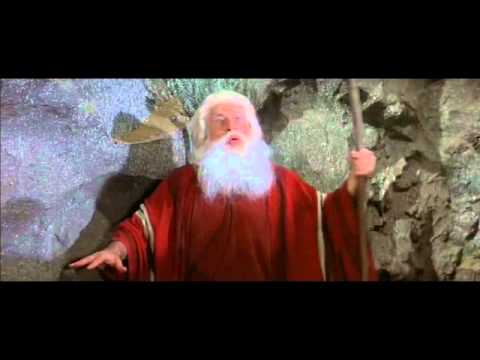I will indulge me (and I hope YOU will indulge me, dear polymaths) in exploring Genesis 4, the story of Cain, the first human to be born on Earth.
Everybody knows the outlines of the story: Cain is a farmer, and his younger brother Abel is a shepherd. They both sacrifice to God, but He doesn’t like Cain’s grilled veggies as much s Abel’s rack o’lamb, and Cain realizes that. God, who at this point is still walking round on Earth talking face to face with all the Adamses, sees that he’s angry, and asks why:
“if thou doest well, shalt thou not be accepted? And if thou doest not well, sin lieth at the door, And unto thee shall be his desire, and thou shalt rule over him.”
But God doesn’t tell Cain why He “had not respect” unto Cain’s offering. Still angry, the next time they’re alone together, Cain kills Abel.
God then asks Cain where his brother is, and he famously replies “I know not; am I my brother’s keeper?”
God says, “What hast thou done? The voice of thy brother’s blood crieth unto me from the ground. And now art thou cursed from the earth, which hath opened her mouth to receive thy brother’s blood from thy hand: when thou tillest the ground, it shall not henceforth yield unto thee her strength: a fugitive nd a vagabond shalt thou be in the earth.”
Okay, now Cain knows the jig is up, but he does not repent, nor does he beg for mercy despite his sin. He immediately begins negotiating for a reduced sentence.
And he gets it! After he argues that his punishment is greater than he can bear, and everyone he meets will try to kill him, God responds “ ‘Whoever slayeth Cain, vengeance shall be taken on him sevenfold.’ And the Lord set a mark upon Cain, lest any finding him should kill him.”
It appears the rest of the sentence was commuted too, because Cain leaves the courtroom a free man, heads East of Eden and founds a city —man’s first city! We aren’t told that his life is any shorter than the rest of his family, who are then living about 850 years, and he has descendants, who give us music (Jubal), pastoralism(Jabal) and metallurgy (Tubalcain). (Are those supposed to be bad things?) And also, apparently, poetry: his grandson Lamech’s “Song of the Sword” (Genesis 4 23-24) an antediluvian lyric on the theme of revenge, is reputed to be the first “song” or bit of poesy ever!
And one female descendant of Cain is mentioned, unlike in any of the other genealogies: Naamah.
(At this point it gets confusing: there are more than one person named, respectively, Enoch, Lamech, Naamah…I reckon it took awhile for mankind to get creative with proper names.)
Oh, BUT, you may be thinking: Cain’s descendant’s were all wiped out in the Flood, right? Noah is a descendant of the godly Seth.
True—but the Bible doesn’t tell us the name of Noah’s wife, the mother of Shem, Ham and Japheth, from whom we are all descended…and some Jewish sources say she was Naamah, yes THAT Naamah, of Cain’s lineage.
The Flood appears to have been the result, not of God’s anger at Cain’s progeny, but at the “Watcher Angels” who were tempted into copulating with human women (Genesis 6:4-7). (Scofield to the contrary)
In short (yuh, I know: too late!) Cain appears to have enjoyed all the favors God traditionally bestowed on His favorites in the OT: worldly success, many illustrious descendants.
Why did God protect, prosper and increase Cain the fratricide?
